Filter by

Knowledge and networks
This book discusses a core question in many fields of the social sciences, namely how to create, share and adopt new knowledge. It creates an original space for conversation between two lines of research that have developed largely in parallel for a long time: social network theory and the geography of knowledge. This book considers that relational thinking has become increasingly important for…
- Edition
- -
- ISBN/ISSN
- 9783319450230
- Collation
- XII, 386 p.
- Series Title
- Knowledge and Space
- Call Number
- 304.2 GLU k
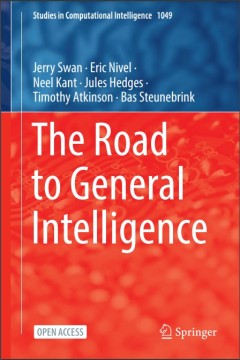
A history of the case study : sexology, psychoanalysis, literature
This volume tells the story of the case study genre at a time when it became the genre par excellence for discussing human sexuality across the humanities and the life sciences. A History of the Case Study takes the reader on a transcontinental journey from the imperial world of fin-de-siècle Central Europe to the interwar metropolises of Weimar Germany, and to the United States of America in …
- Edition
- -
- ISBN/ISSN
- 9781526106117
- Collation
- VI, 240 p.
- Series Title
- -
- Call Number
- 300 LAN h
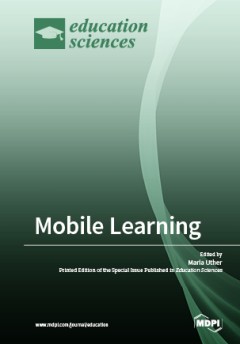
Mobile learning
Mobile learning has become one of the more influential aspects of the field of educational technology, given the ubiquity of modern mobile devices and proliferation of educational applications or ‘apps’. Within this volume, there are a range of studies and reviews which cover a breadth of current topics in the field, namely user motivations for using mobile learning, issues in evaluation, a…
- Edition
- -
- ISBN/ISSN
- 9783038976608
- Collation
- IX, 73 p.
- Series Title
- -
- Call Number
- 371.35 MOB m

The education system in Mexico
Over the last three decades, a significant amount of research has sought to relate educational institutions, policies, practices and reforms to social structures and agencies. A number of models have been developed that have become the basis for attempting to understand the complex relation between education and society. At the same time, national and international bodies tasked with improving …
- Edition
- -
- ISBN/ISSN
- 9781787350724
- Collation
- 173 p.
- Series Title
- -
- Call Number
- 370.972 EDU e
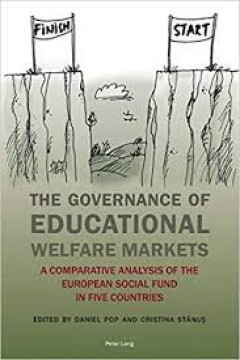
governance of educational welfare markets
This book is a first exploratory inquiry into possible educational selectivity effects of the European Social Fund (ESF). It assesses the extent of the gap between the social policy objectives set through regulatory competences in multi-level governance and the structure of incentives it breeds in practice, with a broad range of implications for the capacity of the government to control for an …
- Edition
- 1st edition.
- ISBN/ISSN
- 9783034318990 (alk. paper)
- Collation
- -
- Series Title
- -
- Call Number
- 379.4 STA t

Knowledge and institutions
This open access book bridges the disciplinary boundaries within the social sciences to explore the role of social institutions in shaping geographical contexts, and in creating new knowledge. It includes theorizations as well as original empirical case studies on the emergence, maintenance and change of institutions as well as on their constraining and enabling effects on innovation, entrepren…
- Edition
- -
- ISBN/ISSN
- 9783319753287
- Collation
- X, 310 p
- Series Title
- Knowledge and Space
- Call Number
- 304.2 GLU k

The European higher education area: between critical reflections and future p…
Higher Education; Educational Policy and Politics; International and Comparative Education
- Edition
- -
- ISBN/ISSN
- 9783319208770
- Collation
- -
- Series Title
- -
- Call Number
- 378.4 CUR t
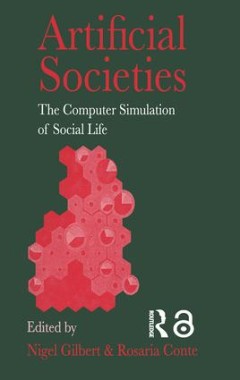
Artificial societies : the computer simulation of social life
An exploration of the implications of developments in artificial intelligence for social scientific research, which builds on the theoretical and methodological insights provided by "Simulating societies".; This book is intended for worldwide library market for social science subjects such as sociology, political science, geography, archaeology/anthropology, and significant appeal within comput…
- Edition
- -
- ISBN/ISSN
- 9780203993699
- Collation
- ix, 257p. : ill.
- Series Title
- -
- Call Number
- 300.113 ART a
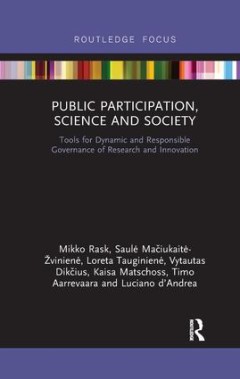
Public participation, science and society : tools for dynamic and responsible…
The field of public participation is developing fast, with phenomena such as citizen science and crowdsourcing extending the resource base of research, stimulating innovation and making science more accessible to the general population. Promoting public participation means giving more weight to citizens and civil society actors in the definition of research needs and in the implementation of…
- Edition
- -
- ISBN/ISSN
- 9781351272964
- Collation
- xvii, 133p. : ill.
- Series Title
- -
- Call Number
- 659.295 PUB p

Citizen science : innovation in open science, society and policy
Citizen science, the active participation of the public in scientific research projects, is a rapidly expanding field in open science and open innovation. It provides an integrated model of public knowledge production and engagement with science. As a growing worldwide phenomenon, it is invigorated by evolving new technologies that connect people easily and effectively with the scientific commu…
- Edition
- -
- ISBN/ISSN
- 9781787352339
- Collation
- -
- Series Title
- -
- Call Number
- 303.483 HEC c
 Computer Science, Information & General Works
Computer Science, Information & General Works  Philosophy & Psychology
Philosophy & Psychology  Religion
Religion  Social Sciences
Social Sciences  Language
Language  Pure Science
Pure Science  Applied Sciences
Applied Sciences  Art & Recreation
Art & Recreation  Literature
Literature  History & Geography
History & Geography